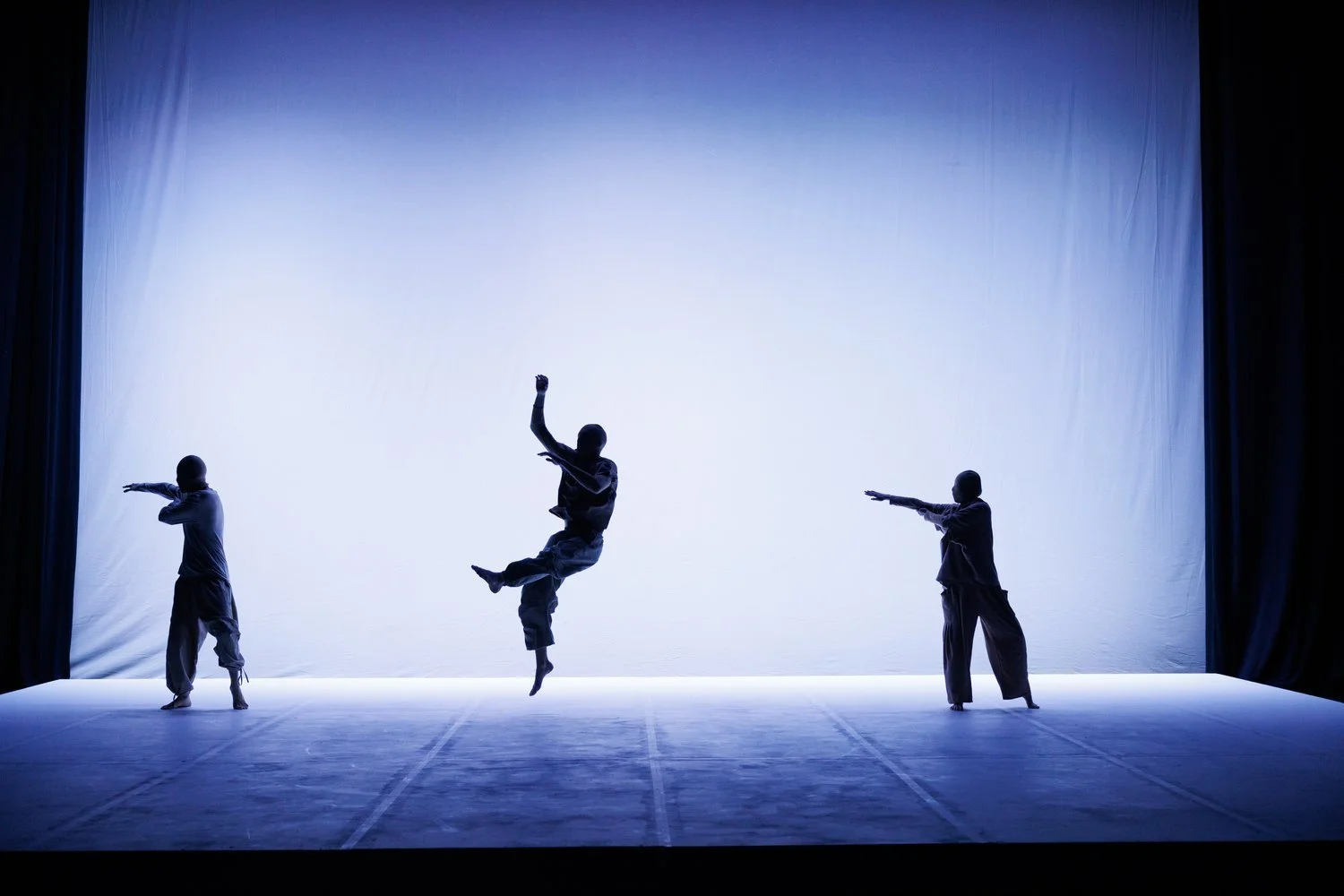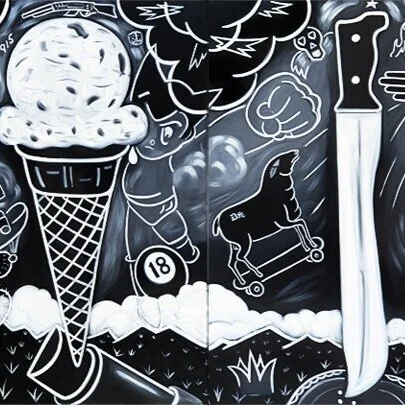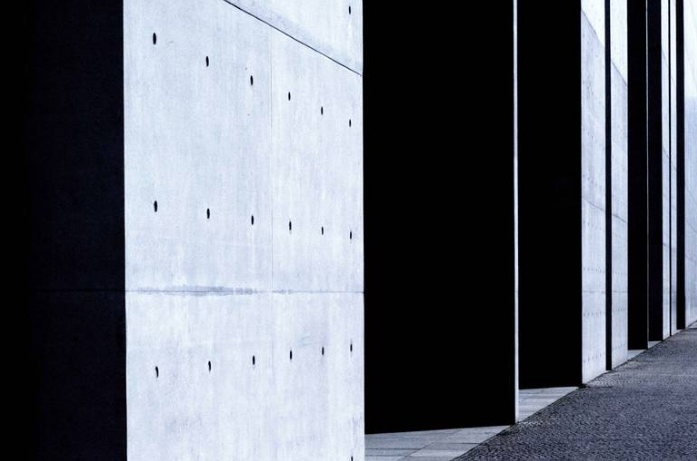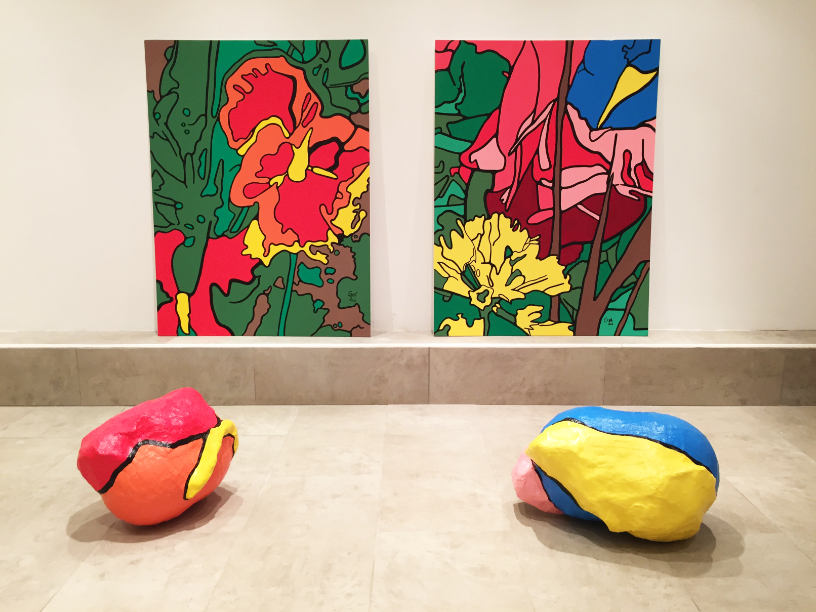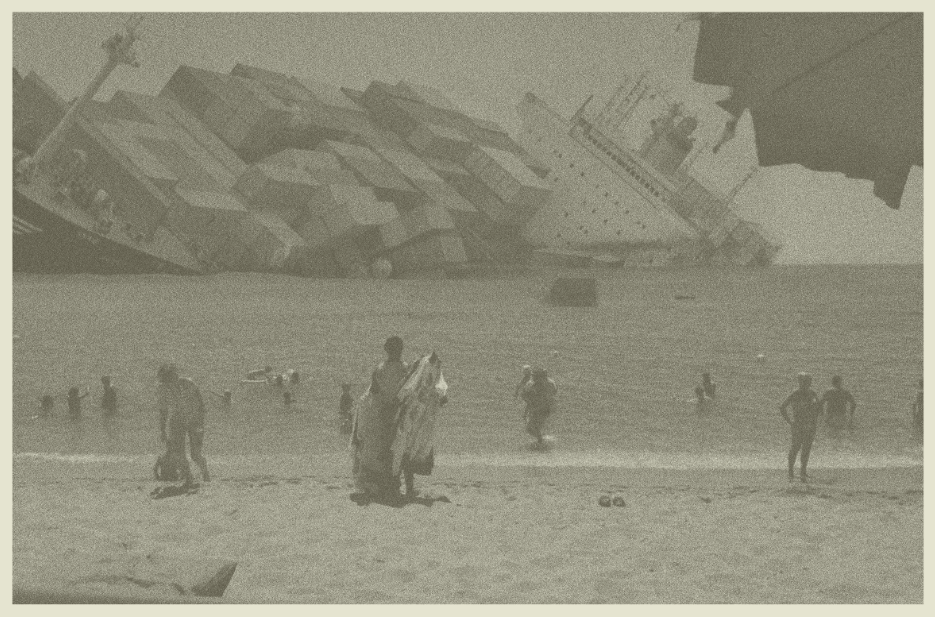Absent Chronicles was born out of a need to express, construct, tear down and process. It is the music created by structuring chaos juxtaposed by visuals generated by processing musical parameters while trying to implement the almost inevitable technological changes happening around us, instead of fighting against them: walking the intersection of art and technology, exploring the stories yet to be told.
INTERVIEW | Barry Wolfryd
The work investigates the exploration and exploitation of “human symbology,” the many “forms” of how we relate to ourselves and others. Wolfryd aims to “awaken minds” to fleeting governing laws by virtue of playing pictorial detective through challenging social norms. He creates a tangible environment in which the viewer challenges the perspectives about the qualities of culture and history.
INTERVIEW | JPRV
JP Racca Vammerisse, a Paris based sculptor with a passion for ceramics. He stages mixed media works masterfully, often injecting other materials such as textiles, plastic, glass, or cardboard, with a keen sense of drama. His artistic production is inspired by both popular and erudite culture. Sources range from Gothic Fantasy to Tex Avery, from gleeful reinterpretations of ornamental styles of Late Baroque architecture to artifacts of the 19th century.
INTERVIEW | Aomi Kikuchi
Aomi Kikuchi is a Japanese creator of innovative fine arts. She is inspired by Buddha’s philosophies of impermanence, insubstantiality, and suffering in all life—referred to in Japanese as Mujo(無常), Muga (無我), and Ku,(苦). She raises awareness that acceptance of impermanence and insubstantiality can liberate from dissatisfaction or suffering.
INTERVIEW | Krishna Pulkundwar
Krishna Pulkundwar deals with different artistic mediums, techniques, and processes. He believes simple is the best, but the simplest thing is the most difficult to create. His work is inspired by every sensible thought, where raw thoughts are subconscious visuals. In day to day activities, problems, attractive forms, desires, expectations, leave reflections on his mind.
INTERVIEW | Tobias Tavella
Tobias Tavella’s "Dynamic Studio Practice" examines sculpture, sound, and objects according to their space-constituting consequences. He creates new contexts of meaning where sounds, "objet trouvés" from nature, and technology are his primal spatial experience of fragility. With his temporary spatial interventions, he reflects the social framework of art and its conditions of production and representation.
INTERVIEW | Gudrun Latten
Gudrun Latten discusses aesthetic problems and questions in photographs and videos, including the image and all its qualities, reality and illusion, art-historical genres, pluralism in style, the ambiguity of signs, gender, and identity issues. His videos are figurative art and are about abstraction, digital color, and movement, visualizing abstract content with figures. He admires Surrealism above all, while the tradition of baroque still life is also essential for his pictures.
INTERVIEW | Cheryl Safren
Cheryl Safren has abandoned traditional artistic materials altogether and creates art-employing chemical processes on metal. She cannot get enough of learning about new materials. and harnesses chemistry to create art. To most artists, experimentation is an essential part of finding their voice. For Safren, the process is a central aspect of any artist’s work, but the materials usually employed do not evolve as much as the artists do.
INTERVIEW | Susana Aldanondo
Susana Aldanondo embodies in her work the joy found in the human connection, focusing on the positives through gestural abstraction, splattered and dripped paint, large and thin strokes, straight lines, and loose curvilinear forms. She creates movement and energy that stand out in her abstract paintings. She expresses a deep connection to identity and spirituality, appealing to deep feelings of connection to ourselves and others.
INTERVIEW | Maisoon Al-Saleh
Born in 1988, Emirati artist and entrepreneur Maisoon Al Saleh is active in Dubai and internationally. Her art dives below the obvious meaning residing on the surface of stories and accounts of the past. She is inspired by historic representational art. Her work brings viewers into a discussion about the importance of Emirati history and challenges how we think about history, memory and their representation in mainstream media.
INTERVIEW | Anna Snegina
Anna Snegina abstract expressionism work often includes dynamic brushstrokes as well as drips of paint. It may accurate geometric shapes and elements. Whether it’s a photo or a sculpture, it’s always the creative process that leads Anna in her art, and it’s a study of the world and introspection at the same time. She aims to inspire those who see her artwork to discover the beauty in colors, shapes, everyday objects.
INTERVIEW | Qeas Pirzad
Born in Amsterdam to Afghani parents, and studied at the Royal Academy of Art at the Hague, Qeas Pirzad learned very early in life to navigate between two opposite worlds. He uses creativity as a bridge and battles with a sense of belonging that deviates from his ancestors. Qeas Pirzad’s most recent body of work takes a critical view of the creation of personalized existence while reflecting on societal and ancestral influences.
INTERVIEW | Emma Coyle
A small body photography series of floral images became the base for Emma Coyle’s abstract work. Her art began with each photograph being minimally drawn, taking away its 3-dimensional aspect, and then sized up on the board or canvas. Her work questions what can be considered a painting, how abstract art is evolving, and how artists can develop ideas to create something of their own.
INTERVIEW | Dina Cline
Dina Cline works are critical engagements with philosophical principals of aesthetics and questions of existentialism. More recently, Dina Cline's painting has engaged with issues of psychology and mental health, as well as notions of the existence of God. As someone living with bipolar disorder and experiencing periods of mania and depression, she has a unique perspective on the human brain.
INTERVIEW | Patrick Sevcik
INTERVIEW | Marco Riha
INTERVIEW | Giovanni De Benedetto
Giovanni De Benedetto is a klecksography Italian artist who enhances the aesthetic power of his paintings through the means of photography. Giovanni aims to broaden people’s point of view by making them embrace multiple perspectives to establish a temporary empathic connection for feeling more close as human beings on a deep level.
INTERVIEW | Jennifer Orhélys
Jennifer Orhélys is a Photo Vogue published photographer who studied cinema, visual arts, and art history. her photographic working the “scénaristique” staging inspired by the Pre-Raphaelite and Romantic periods of classical paintings. Her work is part of the permanent collection of the Kiyo Sato Photographic Museum.
INTERVIEW | Raom & Loba
A duo, collective artists that work into thematic series of “microfictions” fragments that highlight aspects of human nature, making them symbolically visible. Their work is rooted in the margins of reality where fiction is the way, to tell the truth about the ecological perspective to understand the interdependence of Man/Nature.





